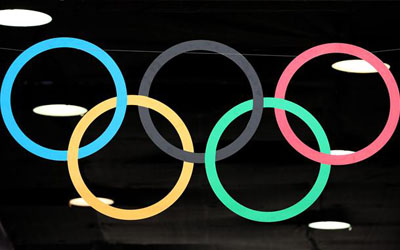A Basic Guide to the Olympic World
August 1, 2016
IFs, IOC, WADA, ASOIF, the EB, NOCs, CAS – The Russian doping scandal has shown just how complex the Olympic movement can be, and just how many acronyms exist within it.
The intricacies of the Olympic movement are naturally complicated, with several points of contention between the bodies involved. But with days to go until Rio – here’s a top line guide to who’s who, and who runs what. Naturally it’s not definitive, but we hope it helps clarifiy the Olympic movement to the casual observer!
IOC
International Olympic Committee (IOC): Headed by President Thomas Bach, the IOC owns all the Olympic rights and, ultimately, decide who goes to the Games, as it is their intellectual property. As the guardians of the Games, and of the Olympic movement in general, it is their decision to decide who may compete, although this a very sensitive area across the Olympic movement.
At the top of the IOC is the Executive Board (EB): Made up of Bach, the President, four vice-presidents, 10 members and a director general. Together they steer the Olympic movement, the equivalent of the cabinet in a government.
The Sports

The IOC have no control over the sports themselves. These are managed by the International Federations (IFs) – from the very biggest like FIFA, down to World Archery. For the summer sports there are 28 IFs. These bodies control the rules of their sports, and decide on who is eligible to compete in the Olympics, and set the selection criteria. However, they may be overruled by the IOC, but again, this is a point of contention.
The IFs also have a union of sorts – for the summer sports it is the Association of Summer Olympic International Federations (ASOIF). ASOIF negotiate with the IOC on how much money should be passed on to the Federations, as well as making sure the IFs interests are represented at the Games, and make sure all sport runs smoothly at the Olympics.
Non-Government bodies

Working with the IFs are the National Olympic Committees (NOCs) of every country that wants to go the Games – These, by IOC law, must be non-government bodies, even if they are funded by the tax payer. The NOCs pick their country’s representatives for the Olympics, corresponding to the selection criteria laid out by the IFs.
Overseeing that all these parties are playing fairly is the World Anti Doping Agency (WADA). WADA is part funded by various governments to ensure sport around the world is clean, and free of drugs. WADA work with NOCs and IFs to test athletes and to accredit anti-doping laboratories. WADA cannot ban anyone, and has no direct authority. But WADA recommends what to do to the IOC and IFs – who do have that power.
Finally, there is the Court of Arbitration for Sport (CAS). CAS is the ultimate, and final, authority in all matters regarding sport, Olympic or not. They usually hear appeals against decisions made by IFs or NOCs.


